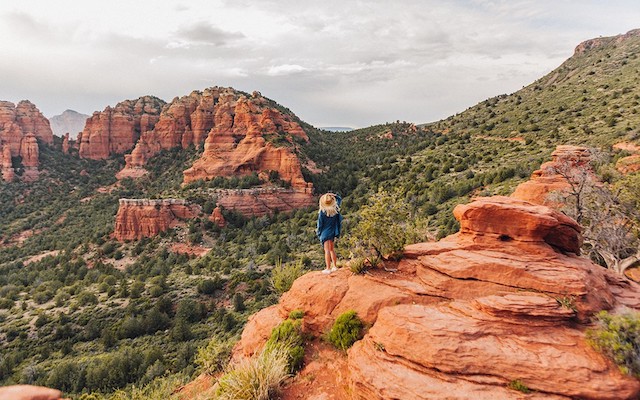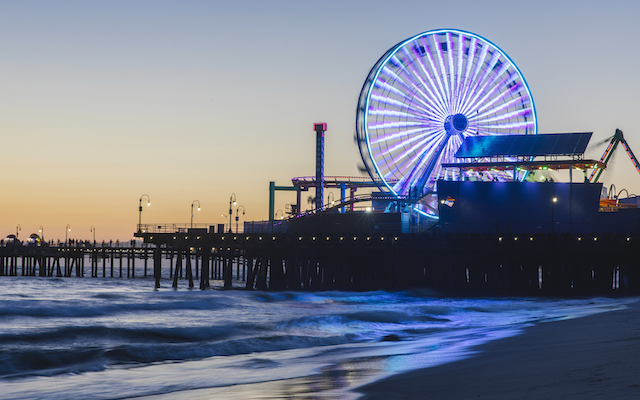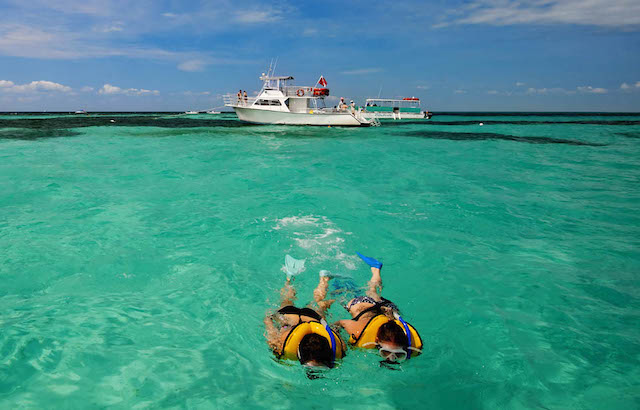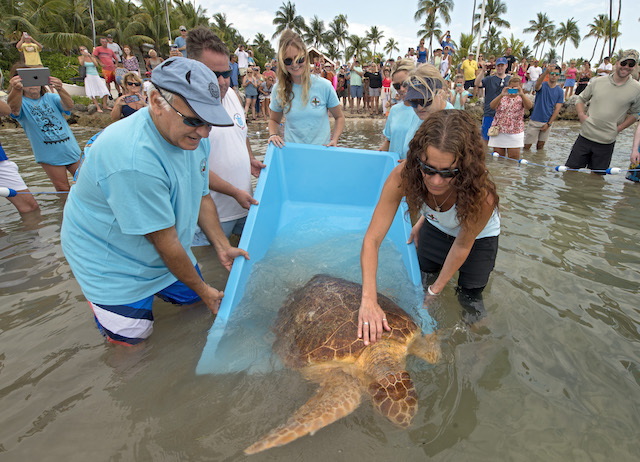
Travel to the USA - and elsewhere - might be limited at the moment, but now’s the time to do your research and plan for the trips you’ll take when restrictions lift. Want to be a more responsible traveller next time you go stateside? Here are 12 top tips for sustainable travel in the USA.
Be a voluntourist
Make a contribution when you stay in the USA by taking part in a voluntourism program. There are lots of ways to do this, from
litter picking programmes to joining coral restoration schemes with a marine conservation organisation in Key West, Florida.
The Coral Restoration Foundation in Key Largo offers regular day programmes enabling visitors to take an active role in protecting and enhancing the Florida Keys reef. Programmes begin with an educational session before certified divers head out for ‘outplanting’ of new corals, kick-starting the reef’s natural process of recovery. Check the CRF website before travel to check dates and availability.
Leave no trace
Take a pledge to make minimum impact on the environment wherever you go. When out in nature it can be tempting to go off the beaten track. But heading off into rugged terrain in search of the ultimate instagram shot can also be damaging to the local eco system (or endanger your own life, obviously). Keep to marked hiking trails and take tours with local guides. In Sedona, Arizona, visitors can take the
Sedona Cares Visitor Pledge, which invites travellers to be mindful of how they explore the area, from minimising water use to respecting quiet spots. Meanwhile, Colorado has developed set of principles aimed at guiding travellers to show care for the state's water, land and wildlife whilst helping to protect Colorado's special places. The
Leave No Trace – Care for Colorado Principles were developed by Colorado Tourism Office and Leave No Trace Center for Outdoor Ethics, through a first-of-its-kind partnership.
 Go solar
Go solar
Keep an eye out for sunny spots with solar powered attractions and places to stay. Since 2017, Disney has reduced emissions by nearly 50% - a Mickey Mouse-shaped solar farm powers two of its theme parks. The coastal city of Santa Monica, California, is home to the 13-story Pacific Wheel - the World’s First Solar-powered Ferris Wheel. By day this iconic wheel offers panoramic views of the L.A coastline more than 185 feet above the Santa Monica Pier and by night it offers an exquisite energy-efficient light show. The city is also home to several environmentally-friendly hotels including Shore Hotel, a LEED Gold certified property just steps from the Santa Monica Pier. More than 75% of the roof surface is covered in solar-reflecting material to reduce heat islands and the swimming pool is heated by solar energy which reduces energy consumption and greenhouse gas emissions. Shore is the only hotel in the state of California to implement a 'demand response unit', which reduces the use of energy during peak hours, and ultimately their carbon footprint.
Swap your sunscreen
Hawai’i is the first state in the US to ban the sale of sunscreen containing coral-harming chemicals, ushering in a new era of reef-safe sunscreen. The new law goes into effect January 1, 2021 but most people have already adopted the change. Reef-safe sunscreen can be bought locally and each of the Hawaiian Islands encourage visitors to do their part in helping to protect the marine life of the islands and prevent coral bleaching.
Travel light
It’s logical, but the heavier an airplane, the more fuel it uses. Cut down on what you pack in your bag and you'll instantly lighten your carbon footprint.
 Snorkel safely
Snorkel safely
When you swim in the sea, be aware of the water's fragile ecosystem, being careful not to damage any coral and keep a good distance from marine creatures.
The Florida Keys National Marine Sanctuary has established its own programme recognising operators committed to promoting responsible and sustainable diving, snorkelling or fishing trips. More than 30 such ‘Blue Star’ operators provide unforgettable experiences, with options available in all five Keys districts.
Connect with the local community
Hawai’i 's tourist board visitors to make a
'pono pledge' during their visit. By doing a little background research before travelling, visitors can connect on a deeper level with the Hawaiian Islands and their people. Hawaii is dedicated to protecting the archipelago's sacred lands, oceans and wildlife, and the website teaches visitors to explore the islands respectfully. has a rich history and is proud of its diverse cultural heritage centred around ‘aloha’ spirit and ohana (family).
Walk, don't drive
Many cities and towns in the USA are designed with the car in mind, but it is still possible to get around by public transport or foot in cities including New York and Washington DC. You see more when you're strolling. At just 8.3 square miles, there's no need for a car in Santa Monica and the city encourages visitors and locals to explore on foot, bike or via environmentally green transport options such as the Santa Monica Shuttle Free Ride. Making the city even more accessible - a short Metro ride also takes visitors straight into Downtown L.A. When at the beach,
swap motorised watersports for exploration by paddle or pedal power. In the Florida Keys, for example, kayak the tranquil backcountry waters of the Lower Keys, paddleboard in Key Largo’s John Pennekamp Coral Reef State Park or explore the island city of Key West by bike.
 Join conservation efforts
Join conservation efforts
Support the local environment by visiting a local wildlife rehabilitation or rescue centre like
The Florida Keys Wild Bird Center in Key Largo, Florida, or Marathon’s world-famous
Turtle Hospital nurses injured sea turtles back to health. In
Colorado you can even stay on-site to see conservation work in action. Here, ranches are part of the state's engrained western heritage and offer guests an insight into the conservation efforts of the land and herds, as well as their advanced sustainability practices.
Zapata Ranch, for example, is one of the largest conservation projects in North America working to protect the environment and bison living on the land. The bison herd roams freely across the 50,000 acres of land. Zapata offers programmes that enable visitors to get involved in life on a cattle ranch, working alongside the ranch staff and wranglers. Guest can try their hand at horseback riding, moving and working the cattle, riding through the bison herd and exploring the beautiful San Luis Valley and Great Sand Dunes National Park.
Eat local
‘Farm to fork’ is a big trend for US foodies - follow their lead and buy ingredients from local farmers' markets and eat out in restaurants that use seasonal, locally-sourced produce - you'll also be supporting the local economy and community and the chances are your meal will taste better, too. Santa Monica was the first city to sign onto the Cool Foods Campaign, which educates the public about how food choices can affect global warming and empowers them with the resources to reduce this impact through eating organically, reducing conventional meat and dairy consumption, avoiding processed foods, buying local and in season and preventing food waste.
www.santamonica.com There’s a novel way to do your bit in Key West - f
ollow locals by dining on lionfish, an invasive, predatory species that has found its way into Keys waters and needs to be responsibly removed as it preys on other sea life native to the island chain. By opting to eat delicious lionfish – found on menus throughout the Keys – visitors are making an eco-conscious choice.
 Consume less
Consume less
Take a refillable water bottle and refill it from the tap or a water fountain, and rather than order bottled water, let your waiter top up your glass with tap water, it’s offered in most US restaurants. Avoid using single-use straws, stirrers, bags and coffee cups - bring your own. Take inspiration from Santa Monica, California, which became the first US city to ban single-use plastics at the start of 2019. Other easy wins including shutting
off lights and reducing air conditioning, as well as recycling cans, glass and plastics wherever you can.
Pick a low-carbon destination
Reduce your impact by heading to an eco-powered spot. Offset some of your carbon in
Jackson Hole Mountain Resort in Wyoming, USA. The resort has switched to 100% wind-generated electricity, for its year round operations. Year-round the green energy used will power all of Jackson Hole’s on-mountain lifts, facilities, and base area operations.